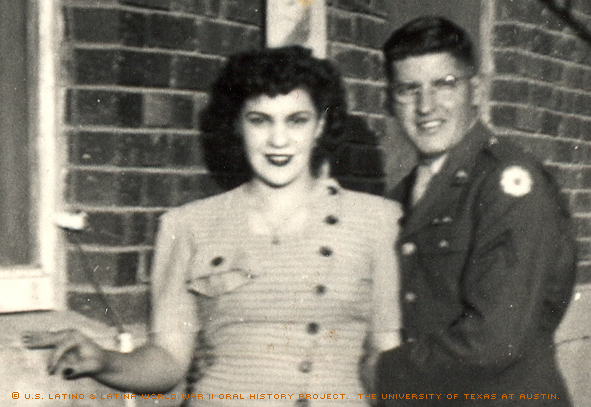

Judge Albert Armendariz Sr. (1919-2007) arrived at USC Law School in 1947 as the only Mexican-American student. Throughout his career, which lasted over fifty years, Armendariz was a prominent advocate for Mexican-American civil rights. He served as an immigration judge for the U.S. Department of Justice from 1976 to 1985 and then on the Texas Court of Appeals from July 1986 to November 1986.¹
Armendariz was born in El Paso, Texas and grew up in a family facing extreme financial hardship. His father commuted to Mexico to work as a telegraph operator while his mother stayed at home to raise Albert and his seven siblings. After his mother passed away when he was nine, Albert worked as a shoe salesman and then as a mechanic to support his family.¹
Armendariz joined the U.S. Army during World War II and was stationed at Fort Bliss, Texas. After the war, he used the GI Bill to further his education and enrolled in USC Law School.¹ Upon graduation in 1950, he returned to El Paso and began his legal career, focusing on immigration law for the Hispanic community.¹ In 1951, he became involved with the League of United Latin American Citizens (LULAC) and the Mexican-American Legal Defense and Educational Fund (MALDEF), and eventually held executive positions in both organizations.
Throughout his early career, Armendariz fought against discrimination and served on the El Paso Civil Service Commission, where he advocated for the elimination of discriminatory practices against Latino applicants for civil service positions.¹ He made significant contributions to the legal field, including his work on the landmark case Hernandez v. The State of Texas, which established Latinos as a protected class under the 14th Amendment of the U.S. Constitution.²
In 2001, Judge Armendariz told a group of Latinx USC Law School students, "We were very successful. You are the proof."²

Photo Credit: The Portal to Texas History

Photo Credit: University of Texas at Austin, Voces Oral History Center

Photo Credit: University of Texas at Austin, Voces Oral History Center